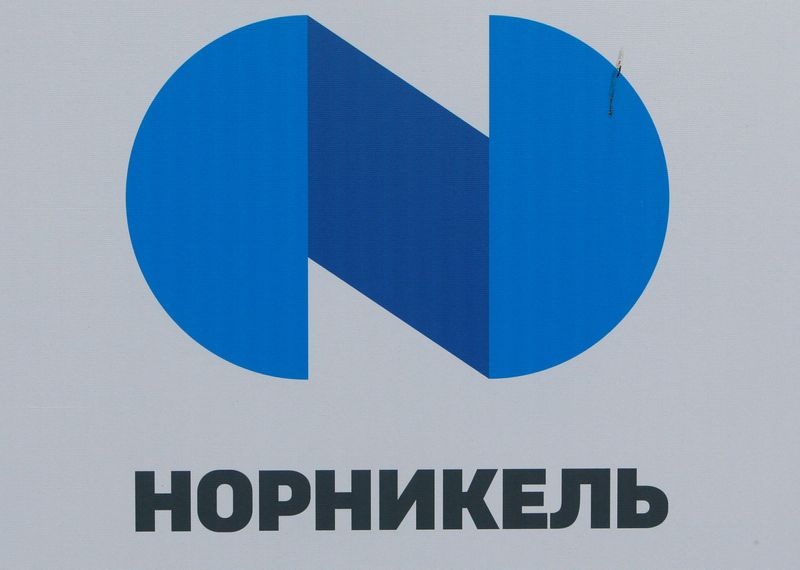Nornickel reduces nickel, palladium sales in H1 as supply chains disrupted
2022.08.02 22:01

FILE PHOTO: The logo of Russia’s miner Norilsk Nickel (Nornickel) is seen on a board at the St. Petersburg International Economic Forum 2017 (SPIEF 2017) in St. Petersburg, Russia, June 1, 2017. REUTERS/Sergei Karpukhin
MOSCOW (Reuters) – Russian metals producer Nornickel said on Tuesday that its sales of nickel, palladium and platinum fell in the first half of 2022 due to disrupted supply chains, while net profit rose by 18% to $5.1 billion due to a stronger rouble.
Nornickel, the world’s largest producer of palladium and high-grade nickel, has not been directly targeted by Western sanctions imposed on Moscow, but it is facing problems with logistics and supplies of imported equipment.
“Introduction of voluntary sanctions by some international suppliers of equipment, spare parts, materials and technologies, has posed serious challenges for the execution of our strategic investment programme,” said Vladimir Potanin, Nornickel’s chief executive and largest shareholder.
“We are applying our best efforts to mitigate their negative impact, but we do see risks that some of our strategic projects will have to be pushed back,” he added.
The miner said its January-June earnings before interest, tax, depreciation and amortisation (EBITDA) fell by 16% to $4.8 billion, while revenue was flat at $9 billion, as higher production and higher base metal prices were offset by lower palladium prices.
Nornickel’s first-half sales of nickel fell by 6%, palladium – by 4% and platinum – by 18%, but sales of copper rose by 22%.
Nornickel said capital expenditure increased by 83% to $1.8 billion in the first half, while net debt doubled to $10.2 billion due to lower free cash flow and payment of dividends for 2021 totalling $6.2 billion.
The miner currently expects surplus in the global nickel market – mostly of low-grade nickel – to reach 75,000 tonnes in 2022 and then rise to 150,000 tonnes in 2023.
The global palladium market is expected to be balanced this year due to recovery of the auto industry, Nornickel added.








